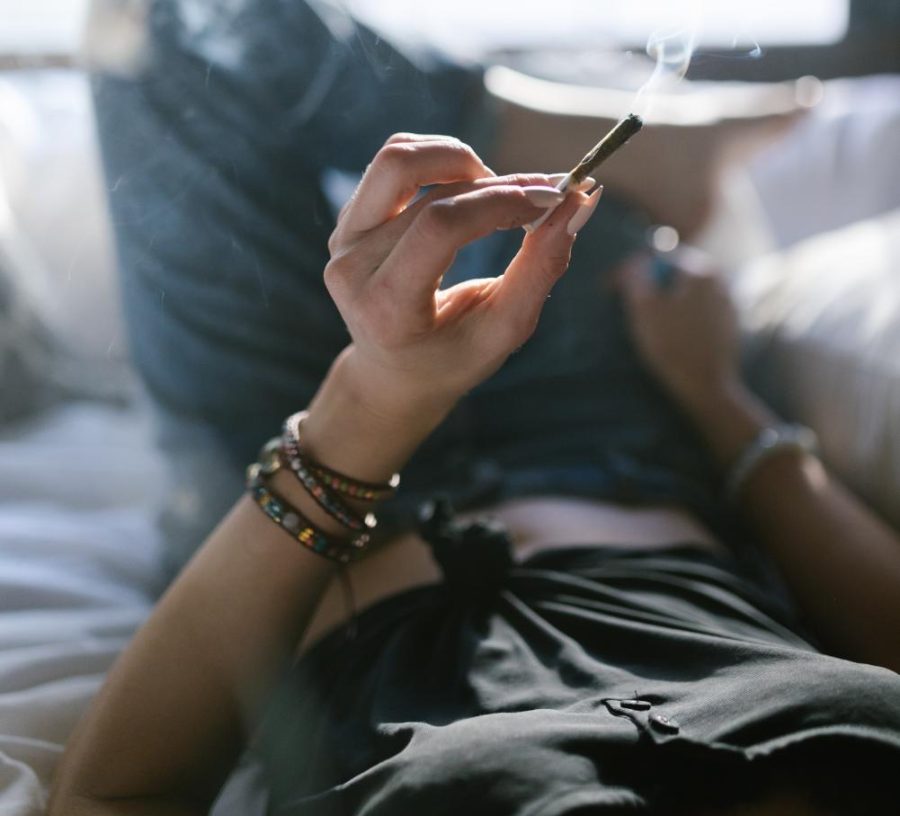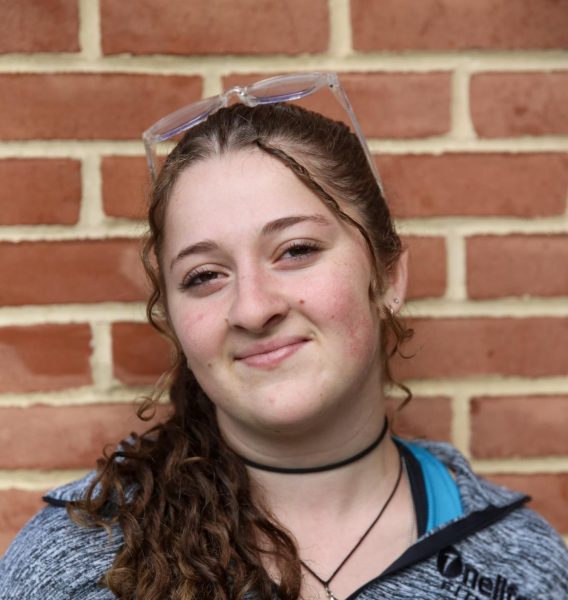“We’re just kids, but we’re used to this stuff already”: Cannabis culture grows at Whitman
September 4, 2023
Some names have been changed to protect students’ privacy.
Sitting on the dock at his lake house, then sophomore Liam watched his friend pull a joint and a lighter out of his pocket. They looked out over the moonlit lake as Liam’s friend lit it up, and passed the joint back and forth for an hour or two. It was Liam’s first time.
Over a year later, Liam had tried cannabis in a variety of methods — edibles, joints, bongs and more. He’s not addicted, he said, doesn’t buy it for himself and goes weeks without smoking at all — but some would still call him a “stoner.”
Although many states have legalized the use of recreational cannabis, including Maryland as of this year, it remains a federal Schedule 1 substance under the Controlled Substances Act, a designation that flags cannabis as a substance with a high potential for abuse and prohibits its consumption. Other substances in this class include heroin, LSD and ecstasy.
Cannabis’ medical use, however, is long documented and has served as an initial compromise to full legalization, Maryland alongside other states also taking part in that step. Research continues to support its medical benefits, including for disorders that otherwise prove resilient to treatment, like multiple sclerosis, epilepsy and post-traumatic stress disorder.
Since cannabis is stereotypically part of the high school social scene too, many students are already curious about it when they are first offered a chance to try “weed” in some form, often by a friend, Brian said.
“It was really just my friends who got me started, because I never really had access until they got me into it,” Brian said. “Pretty much every time I smoke now, it’s just a fun time. For my friends, too, it’s a recreational thing.”
The way in which people consume cannabis has also changed dramatically in recent years. “Carts,” the cartridges used in dab pens to vape cannabis, were heavily advertised as a healthier high, as were “edibles,” which have activated cannabis baked in. Both still hold the potential for abuse.
Researchers contend that there is not only a risk of damaged neurological development with adolescent cannabis use, but also one of psychological addiction. Although not everyone who uses becomes addicted to it, it’s possible to develop a cannabis use disorder, an inability to function normally because of uncontrollable cannabis use. “Cannabinoid hyperemesis syndrome” marks another underreported risk, one that has seen a rise in cases as people consume stronger, especially edible cannabis strains. Symptoms include debilitating nausea and can be severe enough to cause uncontrollable vomiting.
While Brian has never been prevented from fulfilling his daily responsibilities because of the desire for a weed high, he has seen friends who can no longer eat, study or socialize without first getting high. However, all of those friends were able to wean themselves off use once their dependence became a noticeable problem, he said.
The presentation of “marijuana” — smoked cannabis — as a gateway drug continues to play a role in the education and policies surrounding cannabis. While some research suggests that marijuana use is likely to foreshadow the use of other illicit substances, there is limited evidence suggesting that marijuana alone increases the risk of using other drugs.
Whitman sophomore Ari has tried cannabis multiple times in the past out of curiosity, but she feels no desire to move on to more dangerous substances, she said.
“I wouldn’t want to try harder drugs because of the truly life-threatening effects,” Ari said. “I’m not curious enough to put my life in serious jeopardy by trying harder drugs.”
Students’ mindsets on harder drugs have a greater influence on their likelihood to try them than a benign experience with cannabis, Ari said. Education pioneered under President Reagan in the 80s and evolving ever since ingrained anti-drug sentiment in most students from a young age; cannabis sits in the same health-class slideshows next to drugs like cocaine, heroin and hallucinogens.
While public schools shouldn’t condone the usage of cannabis products for teens, they shouldn’t condemn it for all users, Ari said.
“Middle school and other school health classes give a lot of important information, but I don’t think it always translates well,” Ari said. “The lessons also usually portray people who smoke as lousy people or people who will develop serious issues and defects. I don’t think that’s usually the case.”
The social scene tends to portray cannabis in a much different light once students enter the more casual weed culture of high school, Liam said.
“We’re just kids, but we’re used to this stuff already,” he said. “It’s hard to listen to adults still trying to scare us about weed.”
Beyond the portrayal of the repercussions, compulsory middle and high school health curricula have a unique opportunity to teach beyond the dangers of drugs, and also educate about strategies for healthy and safe usage once students become of legal age, advocates argue.
“Things like the dangers of laced drugs and how to stay safe from lacing are important school lessons, and the peer pressure surrounding drugs is also something to keep in mind,” Liam said.
MCPS and several community partners have worked on some programs to address this issue over the past few years, such as offering substance abuse prevention workshops — but these strides do not yet reach large groups of students around the county. There is still a large divide in the perception of marijuana usage between adults and teens in the Whitman community, Brian said.
“Hearing all about the dangers of drugs from the media, and with everyone going on about how drugs will ruin your life, it doesn’t have the effect that adults want it to,” Brian said. “In a messed up way, it all just made me want to try it even more.”











Brian smith • Sep 4, 2023 at 1:30 pm
This was a hard read.
Jimmy • Sep 6, 2023 at 11:01 am
Absolutely hilarious to me that people like you turn a blind eye to underage kids drinking but freak out when weed gets brought up. It’s 2023, imagine being scared of a plant.